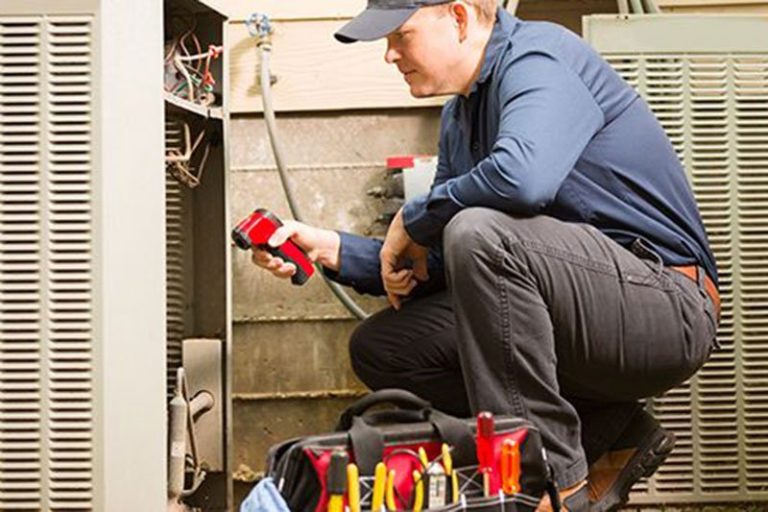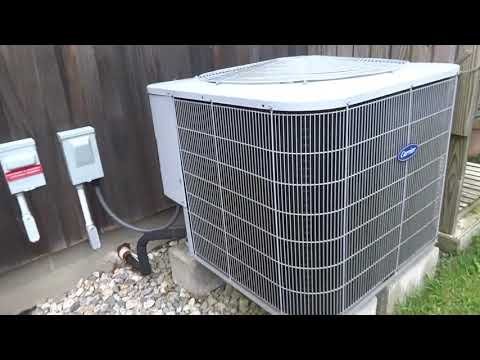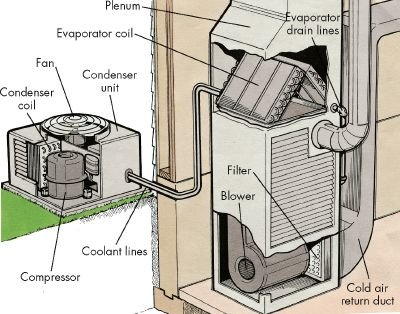Can Air Conditioners Cause Humidity? Exploring The Link Between Ac Units And Increased Moisture
Yes, air conditioners can cause humidity. Improper use or maintenance of AC units can lead to excessive moisture buildup, condensation, and even mold growth. This can negatively affect the desired cooling effect and the health and well-being of individuals. It is important to understand the link between air conditioners and increased humidity levels and take necessary measures to maintain a comfortable indoor environment.
When it comes to air conditioners, most of us primarily associate them with cooling and dehumidifying indoor spaces. However, a surprising fact reveals that these seemingly harmless devices can actually contribute to increased humidity levels.
Yes, you read it right. The very machines we rely on to beat the heat might inadvertently be adding moisture to our surroundings.
For homeowners and individuals who regularly use air conditioners, understanding the link between AC units and increased moisture is crucial. Excessive moisture buildup, condensation, and even mold growth can occur due to improper use or maintenance of these cooling systems. But why is exploring this link so important? Well, imagine this scenario: you come home after a long day, seeking refuge from the scorching summer heat, only to find that your air-conditioned haven has become uncomfortably humid.
Not only does this ruin the desired cooling effect, but it can also have adverse effects on your health and overall well-being. In this article, we will delve into the fascinating world of air conditioners and their impact on humidity levels. We will explore the factors that contribute to increased moisture, debunk common misconceptions, and provide practical tips on how to maintain a comfortable indoor environment.
Understanding the Relationship Between Air Conditioners and Humidity
When it comes to using air conditioners, the primary goal for most people is to create a cool and comfortable indoor environment. However, it’s important to recognize that air conditioning units can have an impact on humidity levels as well.
Contrary to popular belief, air conditioners do not inherently increase humidity. In fact, they are designed to remove moisture from the air, helping to create a drier and more comfortable atmosphere. But there are certain circumstances under which air conditioners can inadvertently contribute to increased humidity.
The Role of Air Conditioners in Dehumidification
To understand the relationship between air conditioners and humidity, it’s essential to grasp the dehumidification process. Air conditioning units cool indoor spaces by extracting warm air and passing it over evaporator coils filled with a refrigerant. As the warm air comes into contact with the cold coils, moisture in the air condenses and collects in a drainage pan. The resulting cool, dry air is then circulated back into the room.
This dehumidification process occurs naturally as a byproduct of the cooling process. However, the effectiveness of an air conditioner’s dehumidification capabilities can vary depending on several factors, including the size and condition of the unit, the outdoor climate, and how well the unit is maintained.
Common Causes of Increased Humidity with Air Conditioners
While air conditioners are designed to remove moisture from the air, several factors can contribute to increased humidity levels:
1. Improper Sizing and Insulation
Air conditioning units that are too small for the space they are trying to cool may struggle to effectively remove moisture. This can result in inadequate dehumidification and increased humidity levels. Similarly, poor insulation in the walls, windows, and doors can allow outside air to seep in, bringing moisture into the space.
2. High Outdoor Humidity
In areas with high outdoor humidity, air conditioners may have a harder time removing moisture from the air. The unit may have to work harder and longer to reach the desired level of cooling and dehumidification.
3. Improper Maintenance
Regular maintenance is crucial for optimal air conditioner performance. Over time, dust, dirt, and debris can accumulate in the unit, hindering its ability to remove moisture effectively. A clogged drainage system can lead to water backup and increased humidity.
4. Incorrect Temperature Settings
Setting the air conditioner temperature too high can result in inadequate dehumidification. The unit may not run long enough to remove sufficient moisture from the air, leading to increased humidity levels.
Debunking Common Misconceptions
There are a few common misconceptions about air conditioners and humidity that we need to address:
Myth 1: Air conditioners add moisture to the air
As we’ve discussed, air conditioners are designed to remove moisture from the air. While certain situations can result in increased humidity levels, air conditioners themselves do not add moisture.
Myth 2: Ventilation is the main cause of increased humidity
While poor ventilation can contribute to increased humidity, it is not the primary cause. Air conditioners play a more significant role in regulating humidity levels by removing moisture from the air.
Myth 3: Air conditioners eliminate the need for dehumidifiers
While air conditioners do dehumidify as part of their cooling process, they may not be sufficient in very humid conditions or when specific areas of a property are prone to excessive moisture. In such cases, additional dehumidifiers may be necessary.
Maintaining a Comfortable Indoor Environment
To ensure a comfortable indoor environment with optimal humidity levels, it’s important to take certain steps:
1. Properly Size and Insulate the Space
When installing an air conditioner, make sure it is properly sized for the space it will be cooling. Additionally, ensure that the space is adequately insulated to prevent outside moisture from infiltrating.
2. Regular Maintenance
Regularly clean and maintain your air conditioning unit to ensure its optimal performance. Clean or replace air filters as recommended, clear debris from the outdoor unit, and ensure the drainage system is clear and functioning properly.
3. Adjust Temperature Settings
Set your air conditioner to a comfortable temperature that allows for effective cooling and dehumidification. Avoid extreme temperature settings that could result in insufficient moisture removal.
4. Utilize Additional Dehumidifiers
In areas with extremely high humidity or specific areas prone to excessive moisture, consider using additional dehumidifiers to supplement the dehumidification provided by the air conditioner.
5. Monitor and Control Indoor Humidity
Use a hygrometer to monitor indoor humidity levels. Ideally, humidity levels should be between 30% and 50%. If humidity levels consistently exceed this range, it may be necessary to take additional measures to control moisture, such as using moisture-absorbing materials or running exhaust fans.
Air conditioners play a crucial role in maintaining a comfortable indoor environment. While they are designed to remove moisture from the air, certain factors can contribute to increased humidity levels. By understanding the relationship between air conditioners and humidity, and taking appropriate measures to maintain optimal conditions, you can enjoy the benefits of both cooling and dehumidification provided by these essential devices.
How does your AIR CONDITIONER work?
Frequently Asked Questions (FAQ)
Can an air conditioner cause humidity?
Why is there moisture on my air conditioner vents?
How can I reduce humidity in my home with an air conditioner?
Is it normal for an air conditioner to produce water?
Can an air conditioner cause mold growth?
Final Words: Maintaining Optimal Humidity Levels with Air Conditioners
In conclusion, air conditioners can impact humidity levels in indoor spaces. While they are designed to remove moisture from the air and create a drier and more comfortable atmosphere, certain factors can contribute to increased humidity.
Improper sizing and insulation, high outdoor humidity, improper maintenance, and incorrect temperature settings can all lead to elevated humidity levels when using an air conditioner. It is important to debunk common misconceptions such as air conditioners adding moisture to the air or ventilation being the main cause of increased humidity.
Air conditioners themselves do not add moisture, and they play a significant role in regulating humidity levels by removing moisture from the air. Additionally, air conditioners may not be sufficient in very humid conditions or in areas prone to excessive moisture, in which case additional dehumidifiers may be necessary. To maintain a comfortable indoor environment with optimal humidity levels, several steps can be taken.
This includes properly sizing and insulating the space, performing regular maintenance on the air conditioning unit, adjusting temperature settings to allow for effective cooling and dehumidification, utilizing additional dehumidifiers if needed, and monitoring and controlling indoor humidity levels. By understanding the relationship between air conditioners and humidity and implementing appropriate measures, individuals can enjoy the benefits of both cooling and dehumidification provided by air conditioning units. It is essential to create a comfortable indoor environment with balanced humidity levels for overall well-being and comfort.






